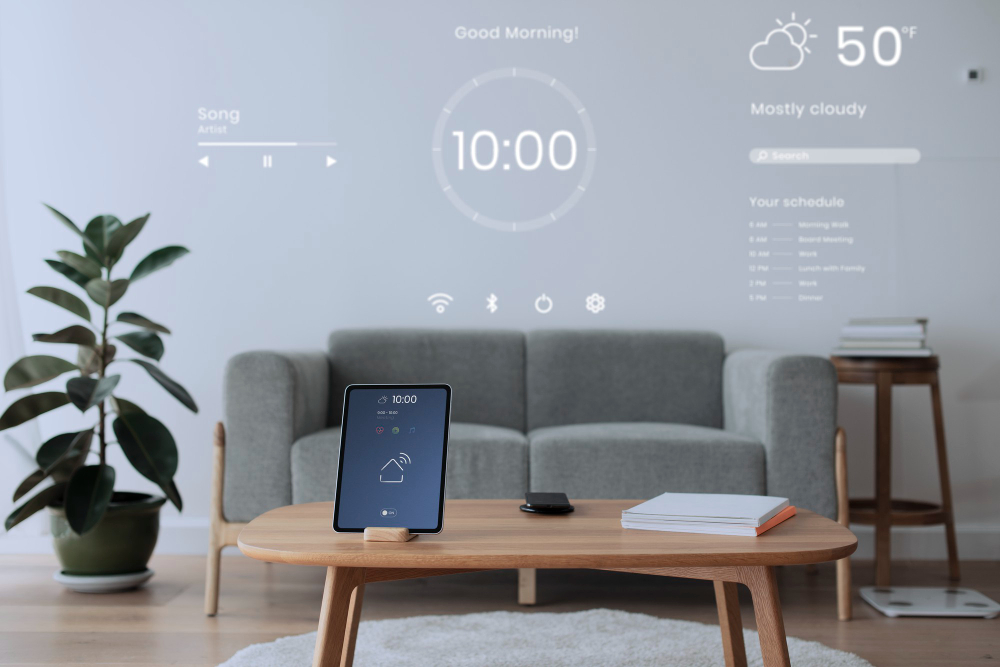Insuring Intelligence: The Rise of Smart Home Protection
If you love travel and technology, you need to think not only about your personal safety but also about protecting your home.
Be Smart When It Comes to Protecting Your Home!
Locking the doors and walking out with your keys in your pocket is no longer enough to keep your home safe.
With today’s connected lifestyle, cameras, sensors, and virtual assistants have become part of the daily routine.

For those who are constantly working or catching flights, protecting your home while you’re away has become one of the top priorities.
What Is Smart Home Insurance?
Smart home insurance is an evolution of traditional homeowners’ policies. It integrates internet-connected devices such as AI-powered cameras, digital locks, smart thermostats, and other home automation systems.
As a result, insurance providers can offer customized plans, often with discounts for homes that are better protected.
The New American Traveler Profile
The modern traveler has changed. Today, many people maintain permanent homes even while working remotely and traveling frequently.
If you’re someone who travels often, investing in smart technology makes perfect sense.
But just as important as having a smart home is having smart coverage—and that’s where specialized insurance comes in.
How Does It Work in Practice?
Imagine you’re on a flight from San Francisco to Paris when your home alarm system detects movement in the garage.
You instantly get a notification on your phone. Within seconds, you check the live camera feed, see it’s just the gardener, and deactivate the alert.
Now imagine it was a burglary. The system would automatically record the footage, notify the authorities, and send real-time data to your insurance provider.
Common Coverage Options for Smart Homes
Top U.S. insurers are now offering policies that include smart home features, with protection against:
- Break-ins and vandalism
- Fires with remote monitoring
- Water leaks detected by smart sensors
- Electrical failures or short circuits in connected devices
What Does It Cost?
The good news is: smart-equipped homes are more likely to receive premium discounts.
Many insurance companies offer 10% to 20% off annual premiums for homes integrated with monitored smart security systems.
Additionally, insurers like Allstate, State Farm, Lemonade, and Hippo are increasingly partnering with brands such as Ring, Nest, Vivint, and SimpliSafe.
For example, a home that keeps its sensors active, cameras running, and heating system under remote control is statistically less likely to suffer major losses — and therefore pays less in insurance.
Data That Helps (or Hurts)
One of the biggest shifts in smart home insurance is the use of behavioral data.
Unlike traditional plans that rely on static information (ZIP code, property value, claims history), newer models evaluate:
- Whether systems are consistently activated
- Whether devices are maintained properly
- How the home responds to emergencies (fire, water, intrusions)
This real-time data allows insurers to reward preventive behavior — but may also penalize homeowners who frequently disable their systems or skip maintenance.
Smart Homes for People Always on the Go
If you spend more time in hotels than in your own house, smart home insurance becomes both an emotional and financial safety net.
Even when you’re across the country—or the world—your home remains “awake,” communicating any issues instantly.
The combination of technology and insurance forms an efficient protection cycle, where sensors detect, notify, and prevent threats.
This allows your insurer to act quickly and cost-effectively — giving you peace of mind while you travel.
The Future of Home Protection
In the coming years, smart home insurance is likely to become the standard, not the exception.
With the expansion of the Internet of Things (IoT), connected devices will not only communicate with each other but also directly with insurers — forming an autonomous, responsive protection network.
And as AI technology advances, we can expect systems that predict risks before they happen — helping to prevent problems before they occur.
Checklist for Connected Travelers
Before you travel, here are some smart steps to protect your home:
- Install motion sensors and smart cameras with remote access
- Use digital locks that log entries and exits
- Connect smoke and water alarms to your Wi-Fi network
- Enable 24/7 monitoring and share access with a trusted contact
- Inform your insurance provider about installed devices — you might qualify for a discount!




